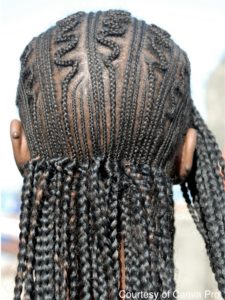I am an African-American in the Iowa State Legislature. I have lived in this state all my life. I am so proud of Iowa’s record of laws and court decisions that have established precedents that expanded civil right and equality for my race before they were adopted on the national level.
First, we have the case of Ralph in 1839, which declared that a slave who came to Iowa legally could not be forced to return his or her master because Iowa did not allow slavery. Iowa also desegregated schools in 1868, almost 90 years before the U.S. reached the same decision in Brown vs. the Board of Education. Lastly, Iowa was one of the first states to grant Black men their right to vote in 1868.
More recently, in 1948, Eda Griffin desegregated Katz Drug Store in downtown Des Moines, where black people were denied service. And in 2008, Iowa was the first state to select Barack Obama in the presidential caucus as our choice for leader of this country.
These are the reasons why I am so motivated to work with my colleagues in the Iowa Legislature to pass the CROWN Act during the 2022 Legislative Session to eliminate employment discrimination based on someone’s hair. A young Black man from Texas reported last summer on Facebook that his dreadlocks cost him his job with a Des Moines trucking company. This travesty would not have occurred if the CROWN Act had become Iowa law during the 2021 Legislative Session when the bill was first introduced.

Creating a Respectful and Open Workplace for Natural Hair Act (CROWN) was crafted in 2019 by California Senator Holly J. Mitchell to ensure protection against discrimination based on race-based hairstyles by extending the statutory protection to hair texture and protective hair styles such as braids, locs, twists, and knots in the workplace and public schools. It should be understood and widely accepted that people should not be forced to divest themselves of their racial-cultural identity by changing their natural hair in order to adapt to predominately white spaces in the workplace or school. It should be understood and widely accepted that people not be forced to divest themselves of their racial-cultural identity by changed their natural hair in order to adapt to the predominantly white spaces in the workplace or school.

The CROWN Act has already been signed into law by 12 states, but unfortunately Iowa – even with her history as a civil rights leader – is not one of them. If Iowa wants to continue to be viewed as a welcoming state, and ensure that equality in the schools and in workplace is highly valued and protected, then we must join these early states in the passage of the CROWN Act. By doing so, Iowa will remain a state leader in of fair and open-endedness, a state where respect for diversity richly flourishes.
